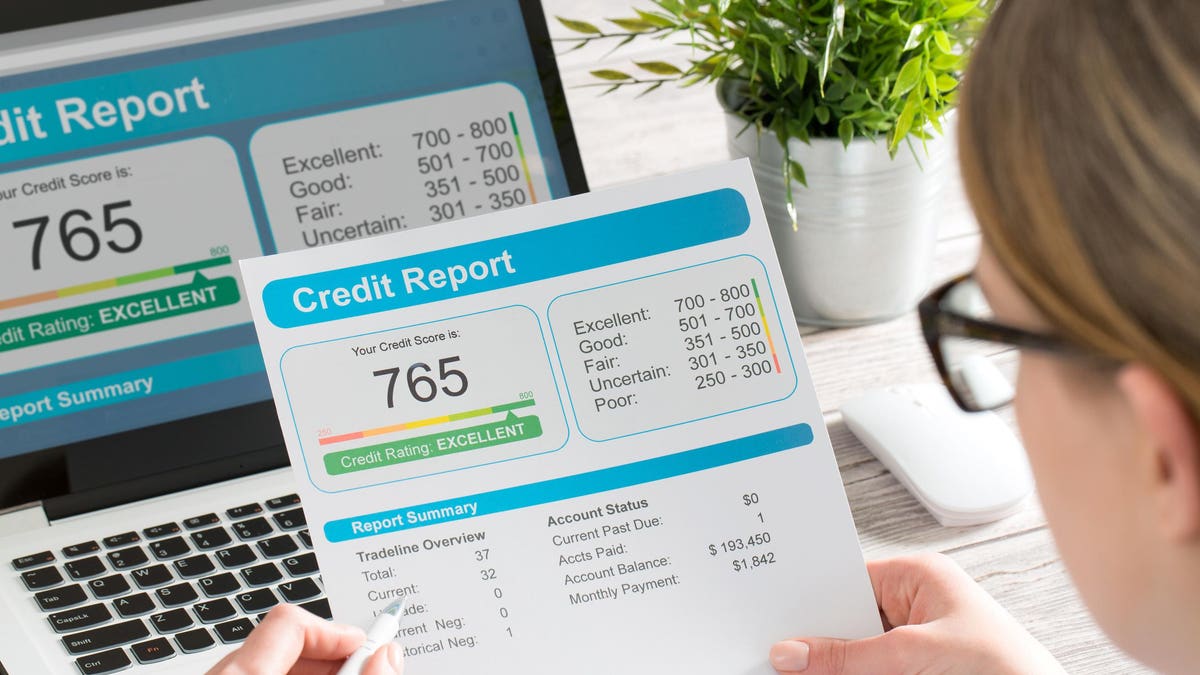Before you stress about boosting your credit score, learn what this number measures about you and your money.
There are certainly benefits to having a high credit score: lower interest rates on large purchases, easier approval for buying or renting a home; and higher limits on credit cards. But most people don’t keep track of their credit score until they want to make a major purchase, and even fewer know how credit scores are calculated.
Credit Scores Measure If You Are Good At Borrowing Money, Not Managing it
In 1989, the Fair Isaac Corporation debuted FICO Scores to provide an industry-standard for assessing whether or not a consumer would be a good candidate for a loan.
A FICO Score is the three-digit number based on the information in your credit reports that helps creditors determine how likely you are to pay back their money. This, in turn, determines how much you can borrow, how many months you have to repay, and how much they will charge you in the form of an interest rate.
When you borrow money, creditors want a fast way to decide whether or not to loan you money. In most cases, they’ll look at your FICO Scores, and won’t pay as much attention to the report details.
A lot of financial education rhetoric says credit scores are an indicator of financial health, and that isn’t always the case because this number does not take into account other important factors.
A common myth is that your income is a consideration in determining your credit score. Other items not included in your credit score are your:
- Job history
- Cash savings
- Property that you own; and
- Investments
As a financial educator, I meet a lot of new students whose goal is to have an 800 credit score. Or if they have a low credit score, it makes them feel like they’ve failed.
But not only is it possible to be financially stable without a sky-high credit score; it’s actually more likely for someone to have a top credit score if their relationship with debt is stronger than their relationship with moderation.
Know The 5 Data Categories Used To Calculate Your Credit Score Before You Need It
Not all credit scores are FICO Scores, but many creditors use them to make faster lending decisions. Some kinds of credit scores can be very different from FICO Scores—sometimes by as much as 100 points.
Don’t wait until you need your credit score to understand how it’s calculated. You’ll notice that they’re entirely based on your relationship with debt, not your finances as a whole. According to FICO, the five components of a credit score are:
- Payment history of your debts (35%) — Whether or not you get your payments in on time accounts for more than a third of your credit score. Making your payments on time, even if they’re minimal, drastically improves credit scores.
- Debt amounts owed (3o%) – The total amount you owe across your accounts is next in importance to your score. Banks want to make sure you don’t have so many other debts that you’re at risk of coming up short on their loan.
- Length of debt history (15%) – How long you’ve been making payments on your debt accounts? The longer you have a debt, the longer the history.
- Mix of debts (10%) – How many different kinds of credit do you have? Banks like to see that your credit you have is coming from different places, like a mortgage or car payment, and not all on credit cards.
- New requests for debt (10%) – How often are you asking to borrow money? Though many people think opening new accounts or getting credit checks is a big impact, it has much less influence than the other data points.
Credit Scores Are For Lenders To Loan You Money, Not Assess You As A Person
I had a great credit score in my early twenties when I had terrible financial habits, and no assets to my name. Then I had no credit score for several years after and became one of the 10% of Americans who are “credit invisible.”
I didn’t have a FICO number attached to my name because I had paid off all my debts, including $72,000 of student loans and over $300,000 of mortgages.
If I let my credit score define my self-worth, I would be defined as nothing.
According to traditional banks, I didn’t make a good candidate for a loan even though I had close to $1 million in net worth, until I simply opened up one credit card that created a score. Now that I have a credit score above 800, I don’t pay too much attention to it because I now have enough cash to pay for my next car or house in full.
Your credit score is not something to feel guilt over and it’s certainly not a reflection of who you are as a person. FICO Scores are calculated based on your debt information.
So, you have the power to influence your score by paying bills on time, lowering the amount of debt you carry and only going into debt as a short-term solution, rather than a long-term lifestyle.
Read the full article here




